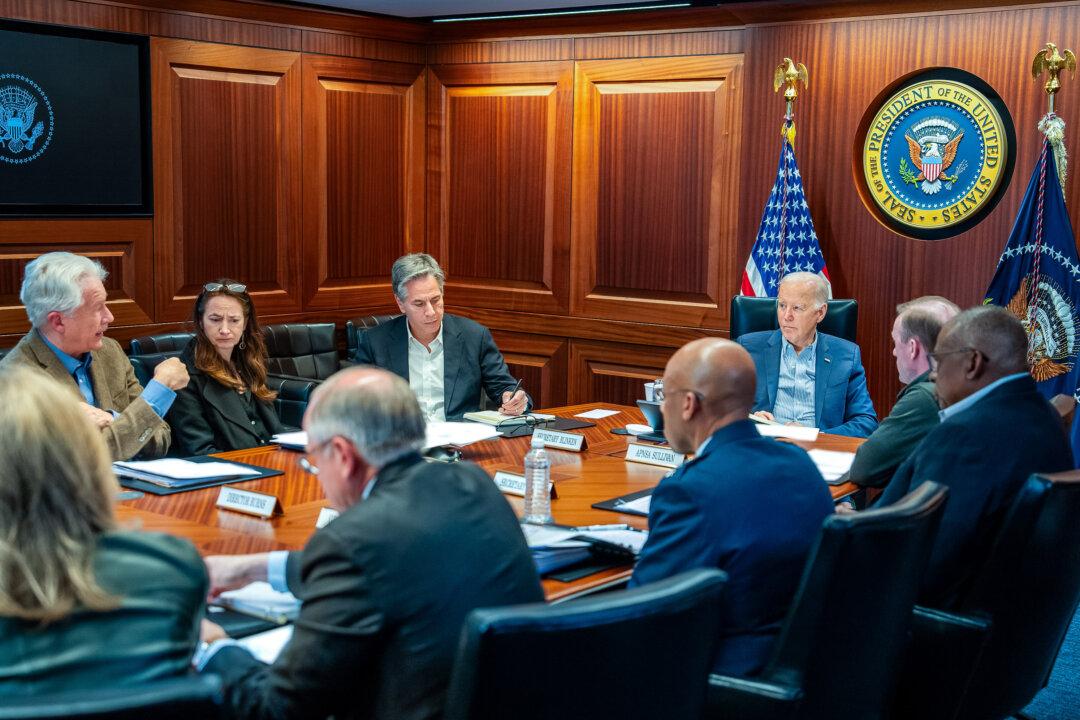WASHINGTON—President Joe Biden and his team are scrambling to ease tensions and prevent further escalation of the conflict in the Middle East following Iran’s unprecedented assault on Israeli territory over the weekend.
Iran on April 13 launched hundreds of air threats toward Israel, saying it was revenge for what Iran claims was an Israeli strike on its embassy compound in Syria in early April. The attack marks the first time that Tehran has launched a direct military assault on Israel.





